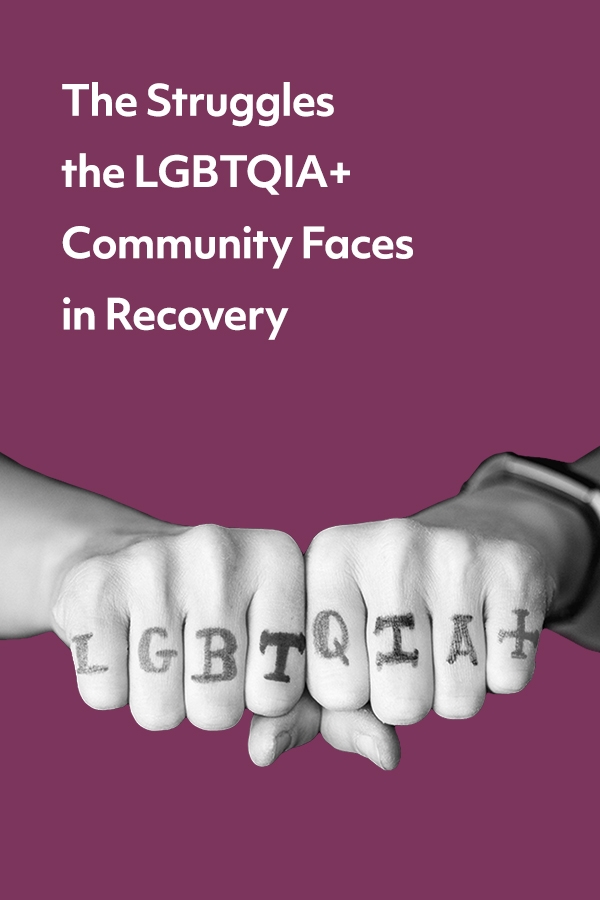It’s that time of year: LGBTQ+ Pride Month!
What is Pride? It’s a month in which we celebrate civil wins that the LGBTQ+ community has achieved. The month of June was chosen to specifically reference the Stonewall Riots that happened in 1969. Pride Month also celebrates visibility, equality, and self-love. It consists of gatherings to show solidarity and awareness. And of course, you will see LGBTQ+ Pride Parades across the country. This Pride Month, we want to shine a spotlight on the unique struggles that the LGBTQ+ community faces in recovery.
SAMHSA, Substance Abuse and Mental Health Services Administration, has reported that 39.1% of gay, lesbian, and bisexual adults used illicit drugs in the past year, compared to only 17.1% of heterosexual adults. Studies show that 20-25% of the LGBTQ+ community has a moderate to severe dependency on alcohol. LGBTQ+ are 12.2% more likely to use amphetamines, and 9.5 times higher chance to use heroin. These statistics are staggering. Why are they so drastically high?
Healthcare Discrimination
We might like to think access to healthcare is equal. Surprisingly, it has been an ongoing battle for LGBTQ+ people to have the same healthcare rights and access as heterosexuals. Even today, the news is flooded with LGBTQ+ laws and bills involving transgender rights, adoption, and LGBTQ+ youth healthcare. All of these bills and laws can spread fear through the LGBTQ+ community. There is a great deal of (often justified) fear of being treated differently by doctors and institutions because of sexuality/gender, receiving inadequate treatment, or even being denied treatment at all. Many don’t feel comfortable talking about their health-related issues with someone not part of the community out of fear of stigma, which limits their healthcare options. This means that people in the community are less likely to seek the help they need for all health issues, including recovery.
Sexuality Struggles
Coming out as an LGBTQ+ person can be daunting. Many have had to live for years in silence with shame, fear, and the question, “Is this even what I am?” And once someone does come out, the reaction of others can definitely dictate how they will, or will not, let people into their lives. Feelings of isolation can be a very easy thing to return to, because they are so familiar. People who are questioning sexuality and gender can face stigma and judgement as well. We receive constant messages from the media and from those around us, telling us what is or isn’t right. Many internalize the message that they are wrong, or that they don’t have (and don’t deserve) equality. Additionally, people living with HIV/Aids can have a considerable amount of shame and fear sharing their diagnosis. All of that fear, shame, and internalized prejudice can lead many in the community to seek escape via substances, and to believe that they are unworthy of help.
Dual Diagnosis
Dual diagnosis is when someone has alcohol and/or drug use disorder, and also has a secondary mental health diagnosis. That secondary diagnosis can be anxiety, panic disorders, depression, post traumatic stress disorder, personality disorder, bipolar disorder, or many others. About one third of LBGTQ+ people are estimated to suffer from a mental health disorder. If these disorders are not treated concurrently with recovery, it can be a recipe for disaster. Self-medicating their mental health disorders with their substance of choice is all too common.
As you can see, LGBTQ+ face multiple hardships when entering recovery. It all brings us back to EQUALITY. That is why LGBTQ+ pride is so important. It’s a time for us to all embrace ourselves with 100% authenticity, and bring to light the lack of civil rights that we ever so need.
Happy LGBTQ+ Pride Month! Love is love!









